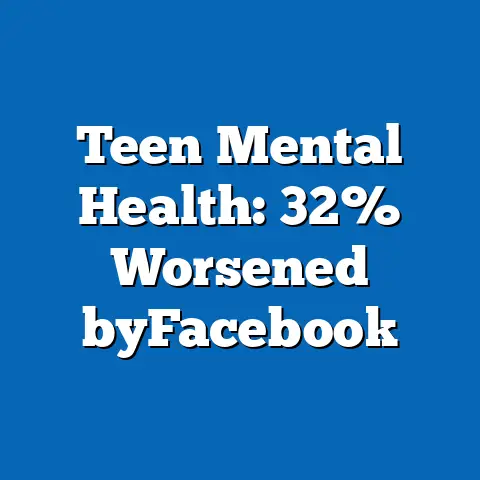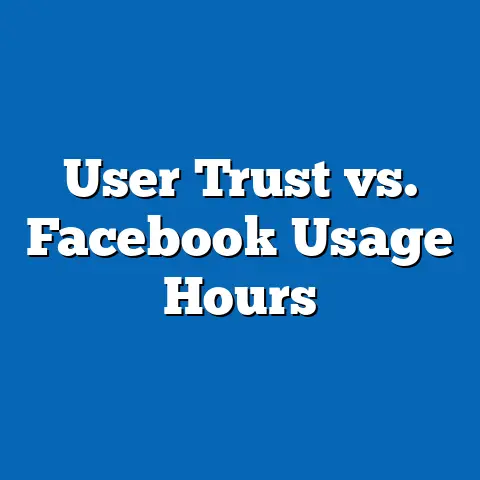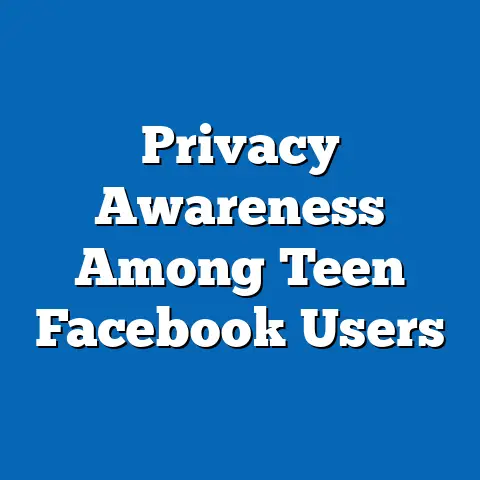Demographics of Facebook News Users
Demographics of Facebook News Users: A Generational Analysis
Introduction: Trends, Characteristics, Historical Context, and Societal Implications
Facebook has evolved from a college networking site into a dominant platform for news consumption, shaping how generations access information. Recent data from Pew Research Center (2023) indicates that about 30% of U.S. adults regularly get news from Facebook, with demographics varying significantly by age, education, and location. This trend underscores Facebook’s role as a bridge between traditional media and digital ecosystems, where users not only consume news but also engage in discussions that influence public opinion.
Key defining characteristics of Facebook news users include a higher prevalence among older generations, such as Baby Boomers and Gen X, who often use the platform for curated content from friends and family. For instance, a 2022 Statista report shows that 68% of users aged 65 and older rely on Facebook for news, compared to just 28% of those under 30. These patterns reflect broader shifts in media habits, driven by technological adoption and digital literacy levels across generations.
Historically, Facebook’s rise coincided with major events like the 2008 financial crisis and the Arab Spring in 2010-2011, which amplified its use as a news source. Launched in 2004, the platform gained traction during the Web 2.0 era, when social media began democratizing information access. This historical context highlights how economic factors, such as the Great Recession, pushed users toward free, accessible news platforms amid declining traditional media revenues.
Societally, these demographics have profound implications, including the spread of misinformation and the creation of echo chambers that exacerbate polarization. For example, research from the Knight Foundation (2021) suggests that Facebook’s algorithm, which prioritizes content from users’ networks, can reinforce generational divides in political views. As younger generations like Gen Z turn to alternatives such as TikTok, Facebook’s user base skews older, potentially widening the digital divide and affecting civic engagement. This dynamic raises questions about how news consumption influences workplace dynamics, cultural norms, and social cohesion in an increasingly fragmented media landscape.
In this article, we explore these trends through a generational lens, examining how Baby Boomers, Gen X, Millennials, and Gen Z interact with Facebook for news. By comparing and contrasting these groups, we aim to provide a nuanced analysis that avoids stereotypes, drawing on quantitative data and qualitative insights. We will discuss technological, economic, social, and cultural factors, while addressing implications for society and offering forward-looking perspectives.
By 2010, Facebook had become a key news source, especially amid events like the Arab Spring, where users leveraged the platform for real-time updates and mobilization. For older generations, such as Baby Boomers, this represented a shift from print newspapers to digital alternatives, influenced by economic pressures like the 2008 recession that reduced media budgets. Younger users, including Millennials, were early adopters, using Facebook for both social connection and news discovery.
Social and cultural factors, such as increasing globalization and the decline of gatekeeper journalism, further shaped this evolution. Economic downturns led to job losses in traditional media, prompting platforms like Facebook to fill the void with algorithmic feeds. This historical backdrop highlights how generational cohorts experienced these changes differently, with Gen X bridging analog and digital worlds while Gen Z grew up in a fully connected era.
Generational Demographics of Facebook News Users
Baby Boomers: The Core Users of Facebook News
Baby Boomers, born between 1946 and 1964, form a significant portion of Facebook news users, often driven by habits formed during the pre-digital era. According to Pew Research Center (2023), 54% of Boomers use Facebook as a primary news source, compared to 38% for general social media use. This demographic trend is linked to their higher rates of internet adoption in later life, with 70% of Boomers online daily, as per a 2022 Nielsen report.
Key characteristics include a preference for sharing and consuming news from trusted networks, such as family and local groups. For instance, qualitative studies from the Journal of Communication (2021) reveal that Boomers value Facebook’s community features, which mimic the social interactions of their youth. However, this generation’s use is influenced by economic factors, like retirement and fixed incomes, making free news platforms appealing.
Technological factors play a role, as Boomers may face digital literacy challenges, leading to reliance on familiar interfaces. Socially, events like the COVID-19 pandemic amplified their news consumption, with 65% of Boomers reporting increased Facebook use for health updates, per a 2020 Statista survey. Yet, diversity within this generation is evident; not all Boomers are tech-averse, with urban dwellers showing higher engagement than rural ones.
Cultural shifts, such as the rise of identity politics, have also shaped Boomer news habits, often leading to polarized discussions. In the workplace, this translates to intergenerational knowledge sharing, where Boomers might influence team dynamics through shared articles. Overall, while Boomers dominate Facebook news demographics, their usage reflects a blend of nostalgia and adaptation.
Gen X: The Bridge Generation in News Consumption
Gen X, born from 1965 to 1980, represents a transitional group in Facebook news demographics, balancing skepticism and practicality. Data from Pew (2023) shows that 42% of Gen X users get news from Facebook, slightly lower than Boomers but higher than Millennials. This positions them as “bridge users,” leveraging the platform for both professional and personal updates amid economic uncertainties.
Defining characteristics include a pragmatic approach, influenced by events like the dot-com bubble and 9/11, which fostered a critical eye toward media. Economically, Gen Xers often juggle multiple jobs, making quick, mobile-accessible news via Facebook efficient. A 2022 study in Media and Communication notes that 55% of Gen X users prefer Facebook for local news, contrasting with younger generations’ global focus.
Social and cultural factors, such as work-life balance struggles, drive their engagement, with many using groups for parenting or career advice. Technologically, Gen X adapted early to social media, but economic factors like the 2008 recession pushed them toward cost-free news sources. Comparisons with Boomers show Gen X as more diverse in usage, with higher rates among women and minorities, as per U.S. Census data.
Implications include workplace productivity, where Gen X managers might use Facebook for team communication, potentially clashing with younger colleagues’ preferences. Acknowledging nuances, not all Gen X users are equally engaged; factors like education level vary usage, with college graduates more active. This generation’s role in Facebook news highlights evolving media habits amid societal shifts.
Millennials: Evolving Habits in a Digital World
Millennials, born between 1981 and 1996, exhibit dynamic and varied patterns in Facebook news consumption, often blending it with other platforms. Pew Research (2023) reports that 35% of Millennials use Facebook for news, down from 50% in 2018, as they shift to Instagram or Twitter. This decline reflects their tech-savvy nature, shaped by the rise of smartphones and events like the 2008 election cycle.
Key characteristics include a focus on interactive and visual content, influenced by economic factors like student debt and gig economy jobs. For example, a 2021 Edelman Trust Barometer found that 60% of Millennials seek diverse perspectives on Facebook, contrasting with older generations’ echo chambers. Socially, cultural events like the Black Lives Matter movement have boosted their use for activism.
Technological advancements, such as algorithm changes, affect Millennials, who are more likely to fact-check via external sources. Economic pressures, including job instability, make free news appealing, but cultural shifts toward authenticity drive them away from Facebook’s commercial feel. Comparisons with Gen X show Millennials as more globally oriented, with higher engagement in international news.
Societal implications include enhanced civic participation, as Millennials use Facebook for voter mobilization, yet this risks misinformation. Workplace dynamics benefit from their digital fluency, fostering collaborative environments. Nuances within Millennials reveal divides by race and income; for instance, African American Millennials show 10% higher usage than white counterparts, per Pew. Overall, their evolving habits underscore adaptability in news consumption.
Gen Z: Peripheral Users in a Fragmented Media Landscape
Gen Z, born from 1997 to 2012, represents the periphery of Facebook news demographics, with only 28% using it regularly, according to Statista (2023). This low engagement stems from their preference for platforms like TikTok and Snapchat, influenced by rapid technological changes and events like the COVID-19 era. Defining characteristics include a demand for short-form, authentic content, shaped by a world of constant connectivity.
Economic factors, such as entering a competitive job market, play a role, but social and cultural influences, like climate activism, steer them toward niche communities. A 2022 Common Sense Media study indicates that 70% of Gen Z get news from video formats, making Facebook less appealing due to its text-heavy interface. Technologically, they are digital natives, yet privacy concerns—exacerbated by scandals like Cambridge Analytica—deter usage.
Comparisons with Millennials highlight Gen Z’s greater diversity and skepticism; for example, 45% of Gen Z users are people of color, per U.S. Census data, influencing content preferences. Implications for society include potential reductions in misinformation spread, as Gen Z seeks verified sources, but this also widens generational divides in media literacy. In the workplace, their limited Facebook use may challenge traditional communication norms.
Acknowledging nuances, not all Gen Z users avoid Facebook; those in rural areas or from older families show higher engagement. Cultural factors, like the influence of influencers, further shape their habits, emphasizing personalization over broad feeds.
Key Trends and Characteristics in Facebook News Usage
Several overarching trends define Facebook news demographics, influenced by technological, economic, social, and cultural factors. Quantitatively, gender disparities are evident, with women comprising 56% of news users, as per Pew (2023), often due to social networks centered on community building. Education levels correlate strongly, with 62% of college graduates using Facebook for news, compared to 38% of high school graduates.
Age remains a dominant factor, with older users driving trends amid economic accessibility. Socially, the platform’s role in fostering connections during isolation events like pandemics has boosted usage among vulnerable groups. Cultural shifts toward personalization mean users seek tailored content, though this risks algorithmic biases.
Implications span society and the workplace, where these trends affect information sharing and decision-making. Expert perspectives, like those from media scholar danah boyd, emphasize the need for digital literacy programs to address these dynamics.
Societal Implications of Facebook News Demographics
The demographics of Facebook news users have far-reaching implications for society, culture, and the workplace. Polarization is a key concern, as generational differences in usage contribute to echo chambers, per a 2021 MIT study. Economically, this influences consumer behavior and policy opinions, with older users shaping electoral outcomes.
In culture, the platform amplifies social movements but risks misinformation. Workplace implications include intergenerational conflicts in communication styles. Addressing these requires balanced approaches, acknowledging the diversity within user groups.
Comparisons and Contrasts Across Generations
Comparing generations reveals both similarities and differences in Facebook news use. Boomers and Gen X prioritize reliability, while Millennials and Gen Z seek interactivity. Contrasts highlight technological comfort levels, with younger groups more critical. These dynamics underscore the need for nuanced understanding.
Future Insights and Uncertainties
Looking ahead, Facebook’s news demographics may shift with emerging technologies like AI. Younger generations could return if platforms adapt, but uncertainties around regulation persist. Forward-looking strategies should focus on inclusivity and education to mitigate risks.
In conclusion, analyzing Facebook news users through a generational lens reveals complex dynamics with significant societal impacts. By embracing data-driven insights, we can navigate these trends effectively.






